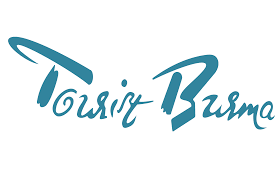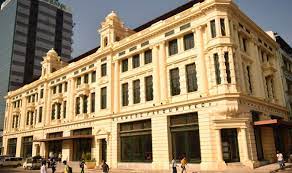Burmese dream jobs, part II


As far as I remember, being a tour guide was the next dream job for the people of Myanmar. In the early days of Ne Win’s government, no tourists were allowed to visit Burma. Later, 24-hour tourist visas were granted. Barely enough to see Shwedagon. In the early 70s, the government took a bold step and granted 8-day visas for foreign tourists. Tourist Burma (later Myanmar Travels and Tours, MTT) monopolized this business for decades. That meant shitty cars, rundown hotels, and restrictions: in the beginning, only Rangoon, Pegu, Mandalay, and Bagan were accessible. Later, Inle Lake was added to the list. Slowly but steadily, the number of cities accessible to tourists increased. In the 90s, the country opened up, and 28-day visas were introduced. Private tour operators were allowed. MTT could not cope with the new competition and fell more or less into oblivion. Today, it serves basically as some board of control for tourism-related matters. Private companies dominated the market and stayed that way to this day – if there were only tourists. The number of tourist arrivals increased dramatically. I remember that in 1977, Burma had around 20.000 tourist arrivals (two of them were mine!). The number of tourist arrivals soared and quickly grew to 100.000 and more. And, of course, these tourists needed tour guides. So many people (primarily young) flocked to this profession. Most of them were graduates of UFL (University for Foreign Languages), where they studied English. German and French were also coveted languages, as was Japanese. Shan tour guides usually accompany the numerous Thai customers since they can communicate with Thais without problems. Obtaining a tour guide license is relatively easy, but finding clients is more complicated. I remember that many tour guides and travel agency employees became self-employed. They took ‘their’ customer base with them. At least five offshoots have emerged from a company I know. Probably more. Burmese way! Nowadays, the tourist industry is facing a hard time. We all hope that the business will start over in the next season. But one must be careful not to be too optimistic: unforeseen events have often thwarted our hopes.


Being a pop star has been added to the list of dream jobs for some time. New hopefuls are popping up every day. Just have a look at Myanmar Idol and similar shows. It doesn’t take much to become a pop star. It’s an advantage if you can sing a little. But it is not necessary. A little squeaking and humming is enough; modern sound technology does the rest. For rappers, it is even easier just keep talking! Very often, children from wealthy families try to start a career with the help of their parents. Producing a CD or, even better, a DVD is relatively cheap. Pretty young girls, in particular, often look for a ‘sponsor’ who should pave the way for them. I myself had the pleasure of helping such a budding starlet get started. It cost me a tidy sum. The result was not worth mentioning. Nowadays, there are at least two shows on television (Myanmar Idol and its copycat, The Voice) that promising talents try their hand at. The jury consists of veteran pop singers who offer valuable advice. Anyone who has seen ‘American Idol’ will know what I mean. But there is light at the end of the tunnel: I will soon release my first songs! For real! Of course, I can’t expect to be as popular as my compatriot Mikis Weber from Bremen at my age. He has achieved nationwide fame as a singer and actor and was interviewed on German television. However, since he left the country, his fame is fading. Let’s wait and see!
Whether you are a sailor, a tour guide, or a pop singer, the most popular profession in Myanmar has always been and will always be: a broker (pwe: za:)! It doesn’t take much. You have to know someone looking for something and another who has precisely that. Or to know someone who knows someone else who knows something … Better still, to have ‘connections’ and get yourself well paid for it. Then you bring the two parties together, and you’ll end up with a nice commission (pwe:ga.). Brokers are not only active in fields such as car trading or real estate. A foreigner needs a visa extension? No problem, that’ll be two hundred dollars. Your cost? Approximately thirty! My wife needed a visa for the UK, whose embassy in Yangon, for some reason, does not issue them. She’d have to fly to Bangkok (or Singapore?) for that. Brokers are happy to do it quickly! It cost us $500, not least because of the prohibitive mailing costs. On that trip, we wanted to visit England and the Republic of Ireland. The latter is not part of the Schengen area (comprising most European countries), for which she had a visa. An Irish visa would probably have been even more expensive. So we decided to fly to Belfast (Northern Ireland), a part of the United Kingdom, and crossed the border illegally into the Republic. So, my wife was traveling as an illegal immigrant for five days! Luckily, no one noticed…
But those are big fish. Most brokers work at the peanut level. You need a cinema ticket? No problem, the broker will get it for you! You don’t want to queue at a public authority? The broker will take care of that for some pwe:ga. Or have
someone else do it for him. You need a train ticket to Mandalay? Or a plane ticket to Dawei? No problem! If you can come up with the money … Rumour has it that brokers can even find people who go to prison for others! Those people take the blame for something they had nothing to do with. And, of course, they and their families have to be paid. This is what you call outsourcing. Many Burmese are happy to hire a broker even for things that could easily be done by themselves.
Following is a report on a house search. Two monthly rents must be paid to the broker for brokering apartments and houses—one by the landlord, the other by the tenant. When selling an object, there is a two percent commission. That’s worth one’s while! And so every Dick and Jane will try their hand at this business. While looking for a new place to live in North Dagon, I arranged to meet a broker near my house. He promised to show me three objects the next day and that he would get the keys. Imagine my surprise when no fewer than seven (!) self-proclaimed brokers were waiting for me there. Some by bike, others on foot. This gang was following me the entire time. The owner of the first property immediately sent me and my entourage away: The house was not for rent at all! On the second attempt, I was shown a relatively built-up hovel at a completely inflated price. What remained was No. 3, an unoccupied house that made a pretty good impression from the outside. Unfortunately, neither the ‘main’ broker nor his ‘colleagues’ had a key with them. So, I left without having accomplished anything.